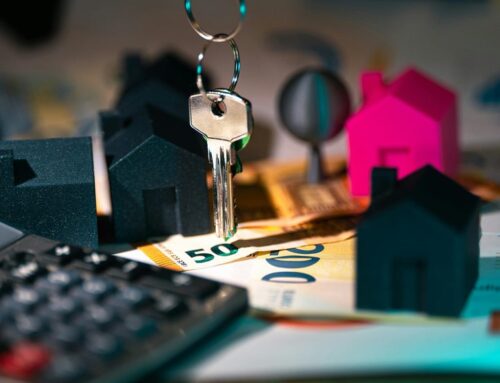To manage co-ownership of a house after divorce, focus on legal aspects by updating titles, considering any agreements, and seeking legal counsel. Divide ongoing expenses and establish clear financial plans. Communicate openly using effective methods, set boundaries, and listen actively. Maintain the property well, schedule regular upkeep, and discuss responsibilities upfront. Address conflicts promptly, dialogue with the co-owner, and seek neutral help if needed. By tackling legal, financial, communication, property upkeep, and conflict resolution diligently, you can navigate the challenges smoothly.
Legal Considerations
When considering the legal aspects of managing co-ownership after a divorce, it’s vital to understand the implications of property ownership and any existing agreements.
In the aftermath of a divorce, ensuring that legal documents accurately reflect the new arrangements is pivotal. This involves updating titles, deeds, and any other relevant paperwork to reflect the changed circumstances.
Additionally, it’s important to review any prenuptial or postnuptial agreements that may impact the co-ownership of the property. Seeking legal advice to navigate the complexities of property ownership post-divorce can provide clarity and protect your rights.
Financial Responsibilities
To effectively navigate the complexities of managing co-ownership after a divorce, understanding and addressing the financial responsibilities associated with the shared property is essential.
It’s pivotal to determine how ongoing expenses, such as mortgage payments, property taxes, insurance, and maintenance costs, will be divided between co-owners. Establishing a clear plan for handling these financial obligations can help prevent misunderstandings and conflicts down the road.
It’s also important to contemplate how major decisions impacting the property, like renovations or selling, will be financed and agreed upon. Maintaining open communication about financial matters and documenting any agreements in writing can provide clarity and avoid potential disputes.
Being proactive and transparent about financial responsibilities can contribute to a smoother co-ownership arrangement post-divorce.
Communication Strategies
Utilizing effective communication strategies is vital in ensuring a successful co-ownership arrangement post-divorce. Open and honest communication between co-owners is key to resolving any differences that may arise. It’s essential to establish a method for regular check-ins to discuss any concerns, updates, or changes regarding the property.
Setting boundaries and expectations early on can help prevent misunderstandings in the future. Active listening is equally important; make sure to listen to your co-owner’s perspective and validate their feelings.
When conflicts arise, approach them with a calm and respectful attitude to work towards mutually beneficial solutions. Remember, effective communication lays the foundation for a harmonious co-ownership relationship.
Property Maintenance
Amidst the complexities of co-ownership post-divorce, ensuring proper upkeep of the shared property is essential. Regular maintenance helps preserve the value of the house and secures a comfortable living environment for both co-owners.
Establishing a maintenance schedule can assist in keeping track of tasks such as lawn care, repairs, and general upkeep. It’s beneficial to discuss responsibilities and costs upfront to avoid potential conflicts down the line.
Consider creating a joint account or fund specifically for property upkeep to streamline the process. Additionally, keeping open lines of communication regarding any necessary repairs or upgrades can prevent small issues from escalating into larger, more costly problems.
Conflict Resolution
Managing conflicts that may arise in a co-ownership situation post-divorce is a reality many individuals face. When disagreements occur, addressing them promptly and effectively becomes necessary. Communication is key.
Try to maintain an open dialogue with your co-owner to discuss any issues that arise. Listening actively and expressing your concerns calmly can help prevent misunderstandings from escalating.
If needed, consider involving a neutral third party, like a mediator, to facilitate discussions and find mutually agreeable solutions. It’s important to prioritize finding resolutions that work for both parties, even if it means making compromises.
Conclusion
Overall, managing co-ownership of a house after divorce can be a challenging journey, but with open communication, clear financial responsibilities, and a willingness to compromise, it is possible to navigate this situation successfully. Remember, keeping the lines of communication open is key to preventing conflicts from bubbling up like a volcano ready to erupt. By working together, even the rockiest of relationships can weather the storm of shared property ownership.
“Your hassle-free house sale starts here! Contact Us now.”
Click to Connect











